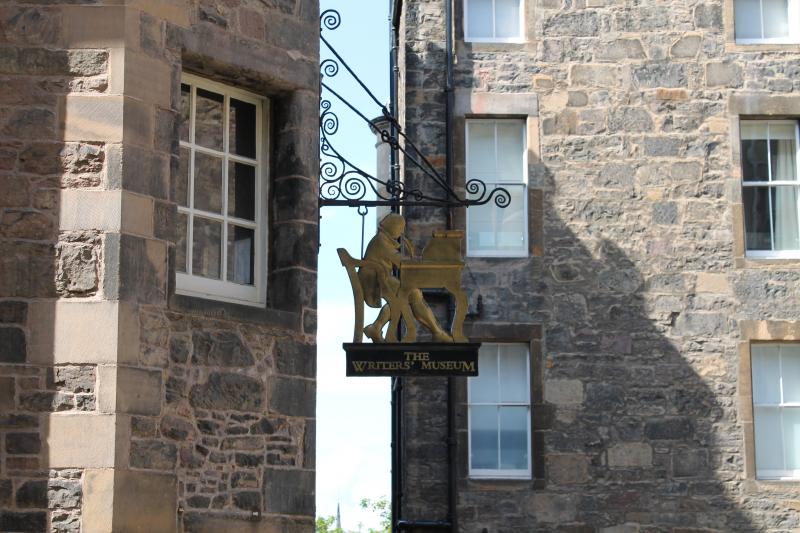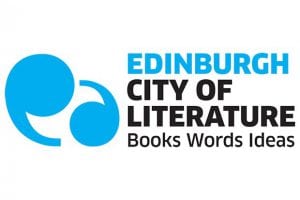Edinburgh

In 2004, Edinburgh was designated the world’s first UNESCO City of Literature, a permanent title celebrating Edinburgh’s status as a literary capital and pioneer in the UNESCO Creative Cities network. This trailblazing city has a unique literary heritage spanning centuries and some of the world’s most exciting contemporary writers. Home to many firsts but always looking to the future, Edinburgh is alive with literary events, unique book shops and cafes, new writing and traditional (and not so traditional) storytelling.
It is the birthplace and home to world-famous writers, poets and playwrights including Sir Arthur Conan Doyle (Sherlock Holmes), Walter Scott (Waverley), and J.K. Rowling (Harry Potter). It also has its own Poet Laureate, the Edinburgh Makar. Every year, Edinburgh hosts the largest celebration of the written word in the world in August with the Edinburgh International Book Festival, an event which welcomes over 800 authors from nearly 40 countries to the city.
The city is home to unique institutions that work hard to champion literature and literacy, including Scottish Book Trust, a national charity changing lives through reading and writing, as well as the world’s first library dedicated to poetry alone, the Scottish Poetry Library, the Writers’ Museum and Makars’ Court, which commemorate Scottish writers and poets, and much more. There are over 50 bookshops in Edinburgh, most of which are key venues supporting the vibrant literary culture of the city, and the sixth oldest university in the English-speaking world can be found right in the very heart of the capital.
The Edinburgh UNESCO City of Literature Trust is the development agency for Edinburgh as a UNESCO City of Literature. It works to bring literature to the streets of Edinburgh, involving people in the city’s literary life, bringing organisations to work together collaboratively for greater impact, and sharing Edinburgh’s literary story with the world.
10 dingen die je moet weten over Edinburgh
Edinburgh hosts the world’s largest book festival, the Edinburgh International Book Festival. Every August, over two and a half weeks, over 800 writers from across the world come together in a heaving program of events for an audience of thousands.
The City of Literature Trust is proud to be part of the Edinburgh International Book Festival every year with Story Shop, the New Writer’s Salon, and Reading the City. Story Shop gives some of Edinburgh’s best new writers a platform to perform their work at the festival before introducing them to the literary industry at the New Writer’s Salon. Reading the City explores how Edinburgh influences its writers and vice versa, with some surprising guest appearances. Smaller book festivals happen year round, from Portobello’s books beside the sea to the Independent Radical Book Fair, bringing independent voices to the city for free since 1988. And just a day trip away, other major book festivals include Bloody Scotland, the Wigtown Book Festival, and the Dundee Literary Festival. There’s something for everyone within easy reach of Edinburgh’s centre.Edinburgh is spectacular, and visitors flock to the city to experience its architecture, literary events, statues, monuments, literary cafes and pubs, and to walk the streets in the footsteps of their literary heroes. From Edinburgh Castle to its smallest, darkest close, Edinburgh’s literary history is written in the stones. There’s always live literature happening somewhere for those who love exciting spoken word. The National Library of Scotland runs free year-round exhibitions telling Scotland’s literary story, and you can always find a story and a warm welcome at the Scottish Storytelling Centre.
Work is carried out all across Edinburgh promoting the importance of literature and literacy for all, and its yearly calendar is filled with programmes that aim to reach people from all backgrounds and ages. The City of Literature Trust’s Words on the Street campaign was launched in 2012, and is a series of projects that aim to bring literature to the streets of Edinburgh. Projects have included RLS Day, LeithLate, and Canongate Stars and Stories which featured an illuminated walking trail in the city’s Old Town.
The Scottish Book Trust, a national charity that works to change lives through reading and writing, runs a series of programmes throughout the year, such as Book Week Scotland, a week-long celebration of books and reading, and Bookbug, which gifts book bags to every child in Scotland and runs free song & rhymes sessions. As well as this, Scotland’s only poetry library, the Scottish Poetry Library, runs a range of outreach programmes: Living Voices which runs activities for older people using poetry and stories; reading groups for young children and families in Poetry for Peanuts; and reading groups for people both familiar and new to poetry. The headquarters of Scottish PEN are also in Edinburgh; an organisation which runs numerous projects championing freedom of speech and literature across borders; an example being their Many Voices project, which sought to amplified voices that had been silenced and marginalised. In 2018, Edinburgh’s Hogmanay introduced Message from the Skies as part of their celebrations, involving a literary journey through the city using a story written by a leading Scottish author.Established in 1580, The University of Edinburgh is the sixth oldest university in the English-speaking world, as well as being one of Scotland’s ancient universities. It was the first to appoint a Regius Professorship of Rhetoric and Belles Lettres (English Literature), and played an important role in developing Edinburgh’s reputation as an intellectual centre during the Enlightenment, with figures such as David Hume and Charles Darwin belonging to its alumni.
Numerous creative writing and literature courses run in the city to this day, and there are now four Universities located across the city: University of Edinburgh, Heriot Watt, Napier University, and Queen Margaret University. In 1995, the Scottish Centre for the Book was established at Napier University as a focus for research and knowledge transfer in publishing, the material book and print culture. The University of Edinburgh also set up theCentre for the History of the Book in the same year.
